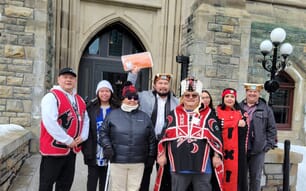Norwegian seafood is in demand all over the world, but meets trade barriers on a number of markets in the form of duties, taxes and widely varying documentation requirements. Trade is regulated by the WTO, but states can also decide on more beneficial terms through free trade agreements between certain trading partners.
Several of our most important competitors have such agreements with our common customers, meaning major challenges for us. Norway has no agreements with six of the biggest economies in the world.
Researchers from Nofima and the Nord University’s Business School will now study the free trade agreements for Norway, Chile and Scotland, to assess what they mean for market access for Norwegian salmon.
“Norway is a small nation, and EFTA, the organisation we negotiate through, is not the most attractive partner for free trade agreements. The geopolitical situation means that we are not first in the queue when it comes to negotiating such agreements. But EFTA tries its best to reduce the competitive disadvantages,” says Christel Elvestad from the Business School.
In recent years, a number of other large agreements have been negotiated which Norway is not party to, such as TTIP (between the USA and EU) and TPP (between the USA and a number of Asian countries).
Such agreements are wide-ranging and seafood is just one of many elements. The researchers say that a lot of Norwegians forget that such agreements concern many other sectors than consumer goods and seafood, and that they have to be attractive for all the parties involved. But even though free trade agreements are a problem for Norway, there is a bright side.
“We have had a free trade agreement with Turkey for some years which is being renegotiated right now. Turkey is a fast-growing salmon market,” says Nofima Project Manager, Ingrid Kvalvik.
The project is financed by the Norwegian Seafood Research Fund and the results will be ready by the end of April 2016.




